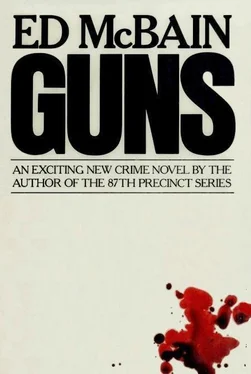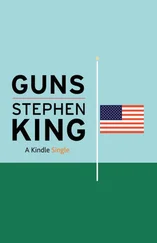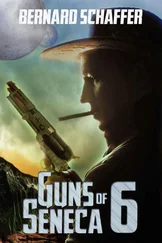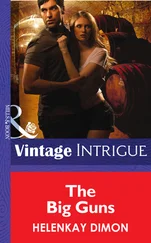They throw you in the squad car like you were a plastic bag of garbage.
The minute those cuffs are on your wrists, you stop being a human being. To a cop, you are the perpetrator. Perpetrator is a word out of police manuals. It is not a human being. You are the perpetrator all the while you are in a police station, and after they book you and take you downtown to the Criminal Courts Building to be arraigned, you become the accused and/or the defendant, and once you are convicted and sentenced, you become the prisoner. When you add all those things together you are nothing but a plastic bag of garbage.
“Tighter,” he says.
Outside the shack, there are rows and rows of corn and what looks like cabbage. He has left Myra and her husband Sam trussed on the floor back to back, and he has locked Will in the storage shed behind the shack. He is wearing the only clean clothes he could find in the whole filthy place, a pair of blue trousers and a white shirt and a plaid sports jacket. Under the sleeve of the sports jacket, he has wrapped a pillowcase around his arm. He thinks the blood has stopped, but he is not sure.
From Sam’s bib overalls he has taken the three hundred and twenty-eight dollars Sam stole from him earlier, and he has also taken the Smith & Wesson revolver. There are six bullets in that revolver, and he can fire it very nicely, thanks, with just his left hand. He would have taken whatever other money Sam had, but Sam didn’t have a nickel of his own. His brother Will had seventeen dollars and forty cents, and Colley relieved him of the bills but left the forty cents as a tip for his assistance in tying up Mr. and Mrs. Sam Hollip, newlyweds in Colley’s mind, since he’s only learned of their marriage quite recently.
The pickup truck is parked near what looks like a pigpen, but there aren’t any pigs in it. Sam has promised him the keys are in the ignition. He has told Sam that if the keys aren’t in the ignition, if he has to come all the way back here again and go through Sam’s pockets again for the keys, why, he will just leave Sam on the floor with a broken head. But the keys are here, and Colley starts the truck and feels a sharp pain in his arm, and wonders if he’s going to be able to drive the thing. He wants to find a phone booth. He has to get some help for his arm. There was no telephone in the shack, and no directory, and he wants to find one now so he can call a doctor and get some help. He doesn’t know what town he’s in, except that it’s somewhere near the Pennsylvania border, and he doesn’t know if it’s big enough to have a hospital, but he doesn’t want to go to a hospital anyway. That’s where he should go, to a hospital emergency room, he knows that. But he suspects a hospital would have to report an animal bite, don’t they have to call the Board of Health or something? For rabies? He doesn’t know, but he can’t take the chance. All he wants is a regular doctor, general practitioner. He’ll go in, tell the doctor he got bit by a dog, tell him the dog’s dead. Doctor wants to report it, he’ll do it tomorrow, this is Sunday, no rush. Be different at a hospital, everybody crisp and efficient in white.
Colley puts in the clutch and manipulates the gear shift till he feels certain he knows where reverse and the various drive positions are. He backs around the pigpen toward the side of the shack. The place is silent. Sun is shining on the cornstalks, the sky behind them is blue and cloudless. He brakes the truck, shifts into first, and drives down the dirt road to the highway. At the highway, he turns right, heading north, driving past the diner he held up not four hours ago. There are no police cars outside; the hubbub probably died down a long while ago. He wonders if they’ve taken Jeanine into custody.
If they’ve got her in custody, they’ll be asking her what Colley meant in the diner when he said “That’s my wife.” She’ll tell them that’s all bullshit, she never saw the man in her life, she was sitting out there deciding whether to go in for a hamburger. But they’ll search the car, which is their right because a crime was committed and they have good reason to believe she was an accomplice, since the holdup man did after all say she was his wife. They’ll search the car without a warrant, they won’t need a warrant, and they’ll find two boxes of cartridges in the glove compartment — a box of 9mm Parabellums and a box of .32 Longs. And they’ll already know from Ballistics that the bullet that hit the short-order cook in the shoulder was a 9mm Parabellum, so already there’s a connection between the woman who was sitting in the Pinto outside and the man who was in there shooting up the joint.
But more important than that, they will also find in the glove compartment an automobile registration for the Pinto, and it will be made out to one Jack William Wyatt. And if there were any good prints on the gun Jocko dropped in the liquor store last night, and if the New York fuzz got a make on him from the F.B.I. files, why then, a teletype went out describing Jack William Wyatt, alias Jocko Wyatt, alias Jockstrap Wyatt, as he was known in Texas prisons. And if the New Jersey cops are on the ball, then they will know at once that they’ve got hold of the wife of a man who held up a liquor store and was an accomplice in the crime of murder. It does not take Sherlock Holmes to look at a driver’s license. Jeanine Wyatt, it says on her license, they will have looked at her license long before they searched the car. If they can’t make a connection from that alone, then they are in the wrong business, they should give up law enforcement and begin selling storms and screens.
He figures she’s in trouble.
He does not give a damn. He hopes in fact that they will find Jocko’s body and nail her for the murder and lock her up and throw away the key. He does not want to run into her ever again. He can still remember her laugh, and it makes him shiver now. Up ahead, he sees a phone booth on the side of the road.
He has to get help for his arm.
The doctor who opens the door looks a lot younger than he sounded on the telephone. His name is Emory Hughes. He has coal-black hair and brown eyes. He is perhaps forty, forty-five years old and he looks like a tennis player or a skier. Colley wouldn’t know a tennis player or a skier if he woke up in bed with one at Wimbledon or St. Moritz, but he’s seen actors pretending to be tennis players or skiers on television, and this doctor, this Emory Hughes, looks like one of those actors. Usually the actors drink beer afterwards. The beers are interchangeable. Colley can never remember which beer the actors are drinking after they get off the squash court or the sailboat, or after they finish climbing the mountain or jumping out of an airplane without a parachute. He wonders if Dr. Emory Hughes drinks beer. He wonders if Dr. Emory Hughes is an actor pretending to be a doctor, the way he himself is an armed robber named Nicholas Donato pretending to be a tourist named Steve Casatelli. He has chosen the name Casatelli because he is sure that when he talks he sounds Italian. Carter Hewlitt from New Canaan, Connecticut, once told him that the minute he opens his mouth his heritage is immediately apparent. Those were her exact words. That was before she fucked up on the getaway that time. He has chosen the name Steve only because he likes that name, always wished his mother had named him Steven instead of Nicholas. Or Stephen with a p-h, that would have been just as good.
“Mr. Castelli,” the doctor says, getting the name wrong. You give somebody a name ends in a, i or o, they immediately pronounce it wrong.
“Casatelli,” Colley says, correcting him, and wondering suddenly if the mispronunciation was a trap. Does the good doctor suspect that this man here with the gnawed arm is not indeed a tourist traveling through the Garden State of New Jersey, but is instead an armed robber who knocked off a diner five miles south of here at twelve noon?
Читать дальше










